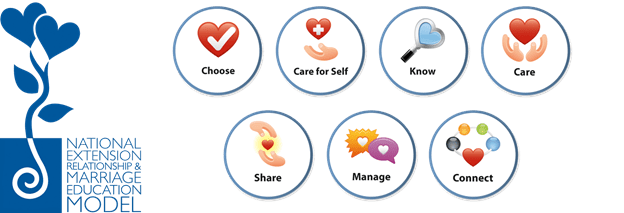By Karen Shirer, Ph.D.
If you were to ask the military families you serve, what is on the top of their minds and causing them great stress, you might hear:
“I don’t know if I’m going to get a text message or a call saying — ‘I have to go.’ ” (Military Spouse with 2 young children)
“You just kind of sit on the edge of your seat like waiting to know — like is this happening, is this not happening? … Like, when can this heaviness end? When can I take this backpack of anxiety off and just kind of breathe?” (Military Spouse)
The war in Ukraine provides an important reminder that military couples and families experience unique challenges due to deployment and other military-related transitions. We, as service providers, can play an important role in assuring military family resilience and readiness.
Now, more than ever, we need to find ways to strengthen military families. One way is to focus on supporting military couples to build strong relationships. Strong relationships protect military families’ resilience and are vital for maintaining family readiness. 
Relationship education (RE) for military couples is a strategy for supporting military couple relationships. In this post, I define what RE is and what it is not. A new podcast series that highlights evidence-based RE resources to help you better serve military couples are also introduced.
What is Relationship Education?
Dr. John Gottman and other researchers have shown that there are distinct patterns of interaction and communication that form the basis of healthy couples’ relationships. This pattern includes specific knowledge, skills, and attitudes that research tells us if practiced by couples, are more likely to result in a stronger relationship.
Dr. Ted Futris and his colleagues distilled knowledge, attitudes, and skills into a model (see Figure 1) that contains seven components of healthy and strong relationships.
Figure 1. National Extension Relationship and Education Model
https://www.fcs.uga.edu/nermen/nermem
You will find that these research-based components make up most curricula for relationship education (RE) to some degree. Using a variety of learning strategies, RE teaches individuals and couples the “… the principles, practices and skills with the intent of helping individuals develop and maintain a happy and healthy couple, co-parenting and/or marital relationship”.
Learn More about Relationship Education and The NERMEM
OneOp Family Transitions has created a 3-part podcast series on tips and resources for RE programs. Dr. Jenny Rea and I talked with Dr. Ted Futris for all three episodes in which we highlight the vast array of work he has done in RE and how we can use these resources with military families.
Dr. Futris is an Extension Family Life Specialist and Georgia Athletic Association Professor in Human Development and Family Science at the University of Georgia.
In episode one, we discuss in more depth the NERMEM and examine specific ways to use the model with military families to maintain healthy and stable relationships. Examples of how to adapt the model to military families are discussed.
Episode two builds on part one and will focus on the Healthy Relationship and Marriage Training (HRMET) Program for family-serving professionals. Dr. Futris and his colleagues developed the training program for child welfare professionals. The program has numerous interactive resources that would be helpful for you to use with military couples. https://oneop.org/podcasts/.
Episode three builds on both parts one and two. Dr. Futris will discuss the Elevate curriculum for couples. He developed the curriculum in partnership with Dr. Francesca Adler-Baeder at Auburn University based on NERMEM model. Research on the program has shown its effectiveness in strengthening couple relationships.
Key Takeaways
Relationship education (RE) for military couples and families can provide critical support for military families’ readiness and resilience, especially during the deployment cycle.
National Extension Relationship and Education Model (NERMEM) provides a framework for professionals who serve military families to offer RE.
NERMEM contains seven components that can be learned to enhance healthy couple relationships. These elements are: choose, care for self, know, care, share, manage, and connect.
A new podcast series on RE will focus on three important RE programs and resources — NERMEM, Healthy Relationship and Marriage Training and Elevate for Couples. Dr. Ted Futris shares examples for applying the model’s components to your work with military couples and families.
Call to Action
-
- Share this post and the podcast series with colleagues, friends, and families who could benefit from the information.
- Check out the resources used in this post and available on MilitaryOneSource.
- Mark your calendars for the future podcast episode release dates.
- Register for the final webinar in the series, Supporting Military Couples, The Relationship Changes of Military Couples During Reintegration, on May 12. Be sure to also check out the past webinars in the series.
- Check-in [often] with the military families and communities that you work with to see how they are doing
Karen Shirer is a member of the Military Families Learning Network Family Transitions Team and was previously the Associate Dean with the University of Minnesota, Extension Center for Family Development. Karen is also the parent of two adult daughters, a grandmother, a spouse, and a cancer survivor.
References
Cramm, H., Norris, D., Venedam, S., & Tam‐Seto, L. (2018). Toward a model of military family resiliency: A narrative review. Journal of Family Theory & Review, 10(3), 620-640. https://doi.org/10.1111/jftr.12284
National Extension Relationship and Education Network (NERMEN). (N.d.). National Extension Relationship and Marriage Education Model (NERMEM). University of Georgia.
Futris, T. G., Adler-Baeder, F., McGill, J., Burke, L., Ketring, S., Smith, T., & Cook, L. A. (2020). ELEVATE: Taking your relationship to the next level. Athens, GA: University of Georgia Extension. Available at http://www.nermen.org/ELEVATE.php
Futris, T. & Schram, D. (2016). Making the Link Between Strengthening Families and Relationships and Marriage Education [Research Brief]. Center for the Study of Social Policy’s Strengthening Families.
McGill, J., Adler‐Baeder, F., & Garneau‐Rosner, C. (2021). An evaluation of the ELEVATE program for couples: Considering vulnerabilities and relationship length. Family Relations, 70(1), 327-351. doi.org/10.1111/fare.12502
MilitaryOneSource. (N.d.). Rekindle, Repair or Reset Your Relationship [Website].
Monk, J. K., Ruhlmann, L. M., Nelson Goff, B. S., & Ogolsky, B. G. (2018). Brief‐systemic programs for promoting mental health and relationship functioning in military couples and families. Journal of Family Theory & Review, 10(3), 566-586. https://doi.org/10.1111/jftr.12280
Murray, C. E., Ross, R., & Cannon, J. (2021). The Happy, Healthy, Safe Relationships Continuum: Conceptualizing a Spectrum of Relationship Quality to Gude Community-Based Marriage Promotion Programming. The Family Journal: Counseling and Therapy for Couples and Families, 29(1), 50-59. doi.org/10.1177%2F1066480720960416
OneOp Family Transitions. (2021-2022). A Close Look at Supporting Military Couples. [Webinars).
Schramm, D., Futris, T. G., Warzinik, K, & Allen, K. (Eds) (2013). Healthy Relationship and Marriage Education Training Curriculum. Available at http://www.fcs.uga.edu/nermen/hrmet
The Gottman Institute. (2022). https://www.gottman.com/
Writers Biography
 Karen Shirer, previous Associate Dean of the University of Minnesota Extension Center for Family Development. Karen is also the parent of two adult daughters, a grandmother, a spouse, and a cancer survivor.
Karen Shirer, previous Associate Dean of the University of Minnesota Extension Center for Family Development. Karen is also the parent of two adult daughters, a grandmother, a spouse, and a cancer survivor.















